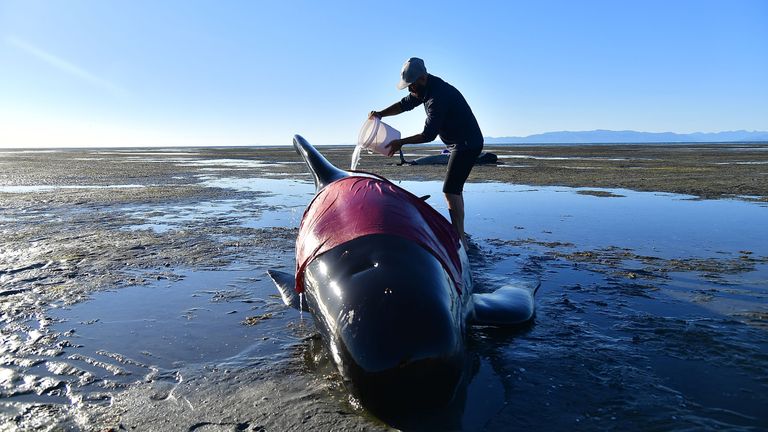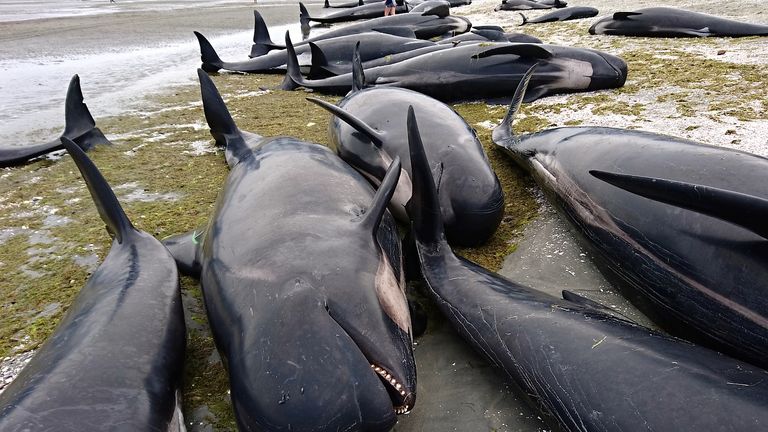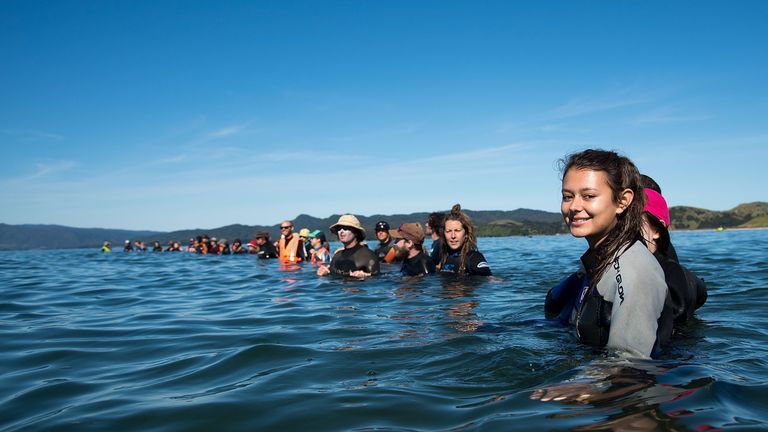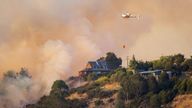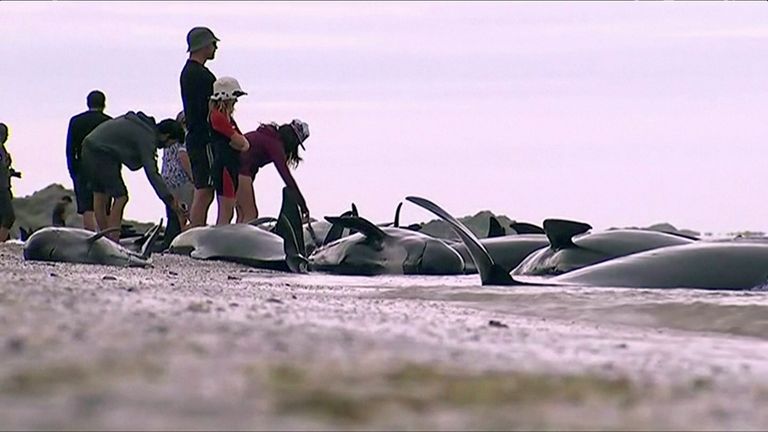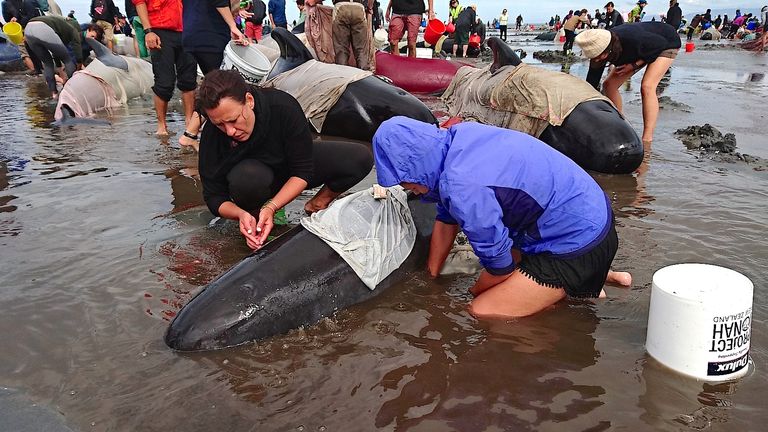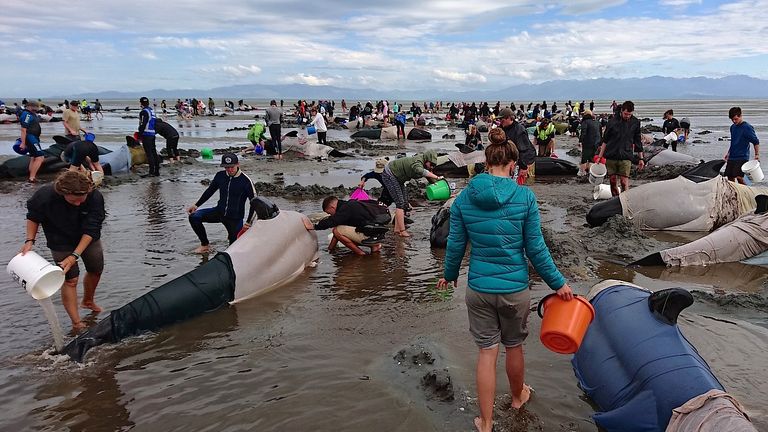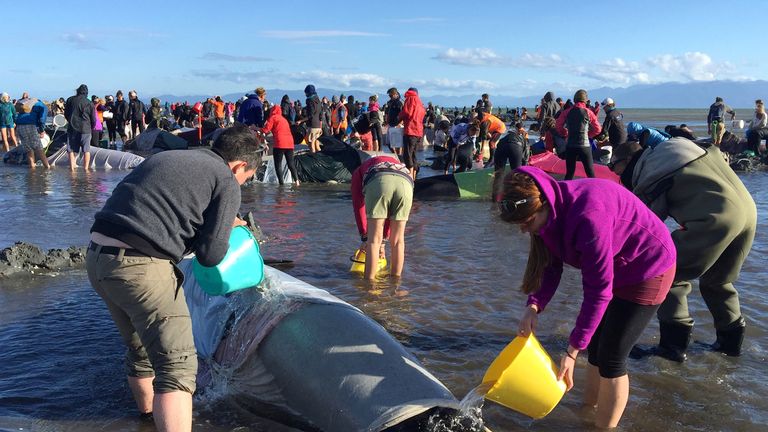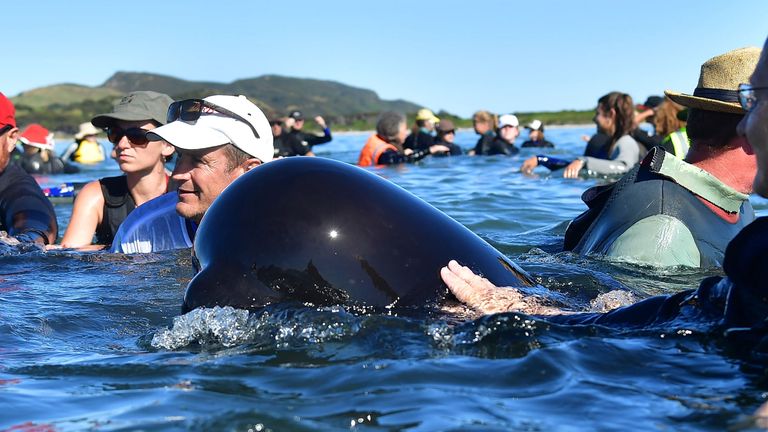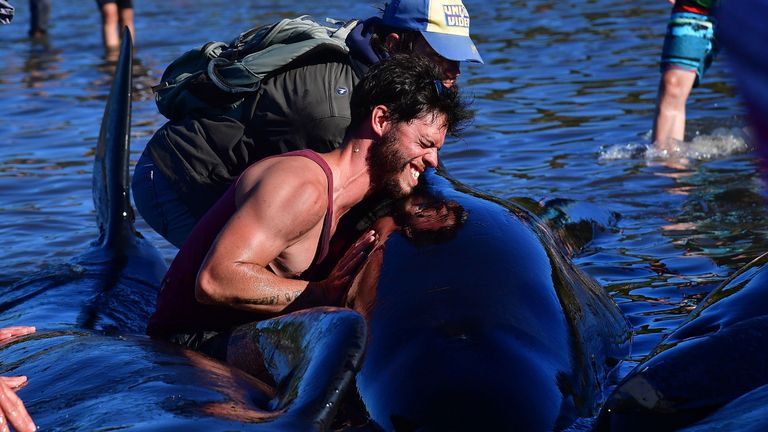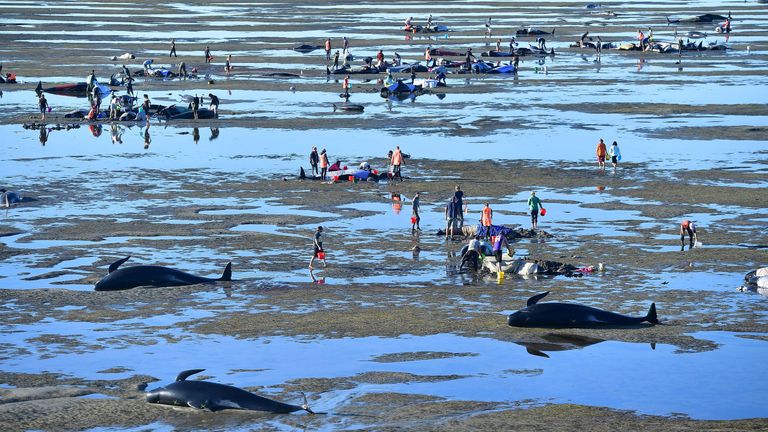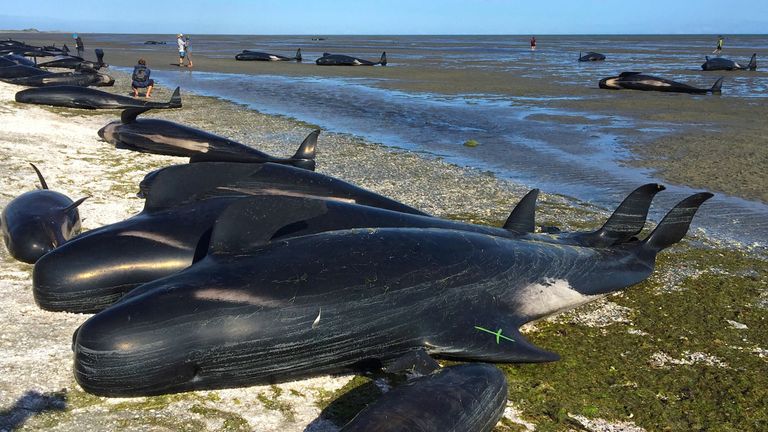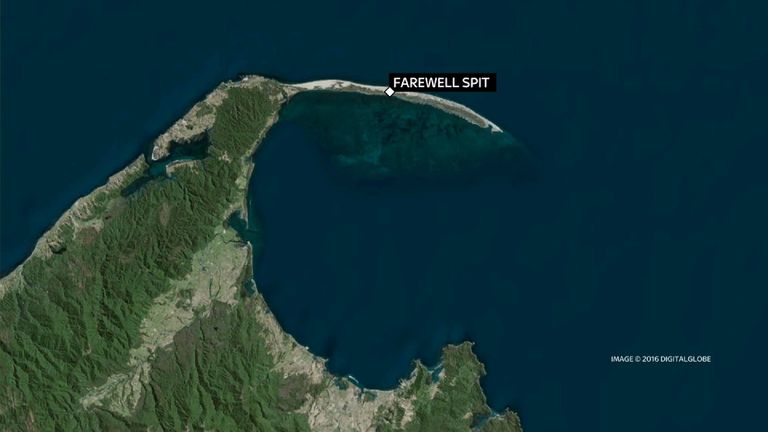Success for whale rescuers in New Zealand as most of second pod is refloated
Rescuers say a second stranded pod of 240 whales have successfully refloated overnight and are swimming offshore.
Sunday 12 February 2017 06:32, UK
There has been some good news for hundreds of volunteers working to save whales stranded off New Zealand's South Island.
Just over 400 pilot whales beached themselves off New Zealand's South Island on Friday local time, followed by a second pod of 240 at the same spot the following day.
But when exhausted volunteers returned to the remote coastline on Sunday morning to resume their rescue efforts, they saw that all of the second pod had refloated and made their way back into the water.
They were milling around in the shallow water so experts will be watching closely to check that they don't strand themselves again.
Department of Conservation spokesman Herb Christophers said: "We had 240 whales strand yesterday in the afternoon and we were fearful we were going to end up with 240 dead whales this morning.
"But they self-rescued, in other words the tide came in and they were able to float off and swim out to sea."
In total, more than 650 of the animals have stranded themselves along a three-mile stretch of coastline at Farewell Spit in the past two days.
Hundreds of volunteers had flocked to the remote spot after the first group of whales were discovered, but about three-quarters of that pod were already dead when they were found.
Nevertheless, rescuers spent the daylight hours on Friday trying to keep the whales cool and calm as they waited for the high tides.
Some of the whales were refloated but many beached again that night.
On Saturday, the people braved the threat of sharks and stingrays to form a human chain in an attempt to encourage the whales to swim into deeper water and not to return to the bay.
About 80 of that first group survived.
Farewell Spit, on the northern tip of the South Island, has been described as a whale trap, as its long coastline can be difficult for whales to navigate away from.
It is believed whales end up stranded as they try to escape predators, chase prey too far inland, or try to protect a sick member of their pod.
The number of calves and mothers in the pods suggested that the stranding could also be linked to the seasonal migration and the area is also known to be difficult for whales to find their way around.
Mr Christophers told Sky News that Farewell Spit is "very shallow and the sand keeps building up in that area and has done for thousands and thousands of years".
Friday's stranding was the third-biggest in the country's history. The largest one on record was in 1918, when about 1,000 pilot whales came ashore on the Chatham Islands.
